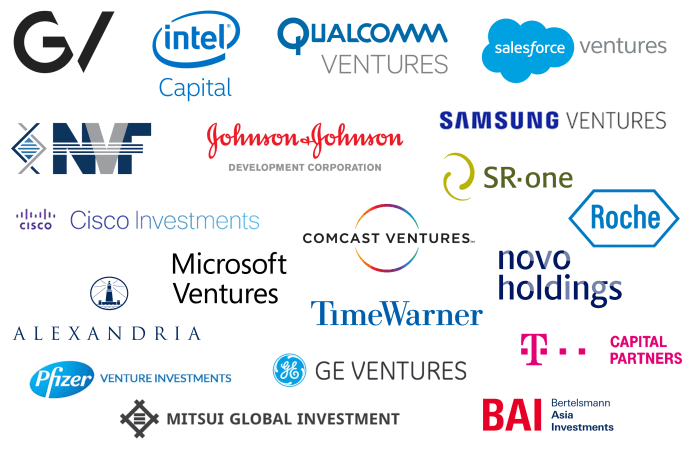The Role of Finance Corporations in Venture Capital

Large financial corporations play an increasingly significant role in the venture capital ecosystem, bringing substantial capital and expertise to the table. Their involvement extends beyond simply providing funding; they often leverage their vast networks and resources to help portfolio companies scale and succeed. This participation shapes the landscape of venture capital, influencing investment strategies and the overall availability of capital for startups.
Methods of Financial Corporation Participation in Venture Capital
Financial corporations engage in venture capital activities through various channels. Direct investment is a common approach, where the corporation directly invests in promising startups. This provides them with a direct stake and influence over the company’s direction. Alternatively, a fund-of-funds strategy involves investing in established venture capital funds, diversifying their exposure across multiple investments and fund managers.
This approach leverages the expertise of experienced VC firms while reducing the operational burden of direct management. Some corporations also create dedicated venture capital arms, operating as independent entities within the larger organization, allowing for greater operational flexibility and specialized expertise.
Risk Tolerance and Investment Horizons
Compared to independent venture capital firms, financial corporations often exhibit a higher risk tolerance due to their larger size and diversified portfolios. However, their investment horizons can vary considerably. While some may seek short-to-medium term returns, others are willing to take a longer-term view, particularly when investing in disruptive technologies with potentially high growth trajectories. This longer-term perspective allows them to ride out market fluctuations and support companies through various stages of development.
Independent venture capital firms, while often more agile, may face greater pressure to deliver returns within a shorter timeframe due to fund lifecycles and investor expectations.
Examples of Financial Corporations with Significant Venture Capital Arms
Several large financial corporations have established substantial venture capital arms. For example, Citigroup’s venture capital investments focus on fintech and related sectors, leveraging its expertise in financial services. Similarly, Goldman Sachs has a dedicated venture capital group that invests in a range of technology companies. These corporate venture arms often benefit from the parent company’s resources, network, and industry knowledge, providing a competitive advantage in sourcing and supporting investments.
Advantages and Disadvantages of Corporate Venture Capital
The decision for a corporation to engage in venture capital presents both opportunities and challenges.
Advantages:
- Access to a large capital pool for investments.
- Synergies and potential for collaboration with existing business units.
- Early access to disruptive technologies and innovative business models.
- Enhanced corporate reputation and brand image.
- Potential for significant long-term returns.
Disadvantages:
- Higher risk compared to other investment options.
- Potential for conflicts of interest with existing business lines.
- The need for specialized expertise in venture capital management.
- Longer investment horizons compared to other investment strategies.
- The possibility of illiquidity for a considerable period.
Impact and Influence of Venture Capital

Venture capital plays a pivotal role in the global economy, acting as a catalyst for innovation and a significant driver of job creation. Its influence extends far beyond simple financial investment, shaping the strategies and governance of numerous startups and influencing the trajectory of entire industries. Understanding this impact is crucial for appreciating the complex relationship between venture capital, entrepreneurship, and economic growth.Venture capital’s economic impact stems from its direct investment in innovative companies.
This funding allows startups to develop new technologies, products, and services, often pushing the boundaries of existing industries. The resulting innovations contribute to economic growth by increasing productivity, creating new markets, and stimulating competition. Furthermore, these ventures create jobs, not only within the funded companies themselves but also across the broader ecosystem of suppliers, distributors, and related businesses.
This job creation contributes to overall employment and economic prosperity.
Venture Capital’s Influence on Startup Management and Corporate Governance
Venture capitalists are not merely passive investors; they actively participate in shaping the management and governance of their portfolio companies. Their expertise in various business areas, from product development to marketing and finance, provides valuable guidance to startup founders. Often, venture capital firms will appoint board members or advisors to provide strategic direction and oversight. This hands-on approach ensures that startups are well-managed and have access to the resources needed to succeed.
Furthermore, the need to meet the expectations of their venture capital investors often pushes startups to adopt more robust corporate governance structures, improving transparency and accountability. This influence leads to better-managed and more sustainable businesses.
Challenges and Risks Associated with Venture Capital Investments
While venture capital offers significant potential returns, it also carries substantial risks. The vast majority of startups fail, and venture capital investments are inherently speculative. Investors face the risk of losing their entire investment if a portfolio company fails to achieve its objectives. Furthermore, the illiquidity of venture capital investments makes it difficult to quickly divest from underperforming assets.
Market conditions, changes in technology, and unforeseen competitive pressures can all negatively impact the performance of venture-backed companies. Thorough due diligence and a diversified portfolio are crucial for mitigating these risks. Successful venture capital firms possess a deep understanding of these risks and employ sophisticated strategies to manage them effectively.
Examples of Venture Capital’s Influence on Specific Industries
The influence of venture capital is evident across numerous industries. For example, the rise of the internet and the subsequent explosion of e-commerce were significantly fueled by venture capital investments. Companies like Amazon, Google, and Facebook all received substantial venture funding in their early stages, and their success helped shape the digital landscape. Similarly, the biotechnology and pharmaceutical industries have seen a significant influx of venture capital, leading to advancements in drug discovery, medical devices, and personalized medicine.
The clean energy sector is also attracting substantial venture capital, driving innovation in renewable energy technologies and sustainable practices. These examples illustrate the transformative power of venture capital in shaping the technological and economic landscape.
Long-Term Effects of Venture Capital Investments on Portfolio Companies
The long-term effects of venture capital investments can be profound and far-reaching. A well-structured investment can provide:
- Accelerated Growth: Access to capital allows for rapid scaling of operations and market penetration.
- Improved Management and Governance: The involvement of experienced venture capitalists leads to stronger leadership and more robust corporate structures.
- Enhanced Innovation: Funding allows for investment in R&D, leading to the development of new products and services.
- Increased Market Value: Successful ventures often experience significant increases in valuation, benefiting both the company and its investors.
- Access to Networks and Expertise: Venture capitalists provide connections to other businesses, mentors, and industry experts.
- Strategic Partnerships: Venture capitalists can facilitate collaborations and strategic alliances that benefit portfolio companies.
- Successful Exits: Ultimately, many venture-backed companies achieve successful exits through IPOs or acquisitions, generating substantial returns for investors and creating wealth.
Future Trends in Venture Capital and Finance Corporations
The venture capital landscape is in constant flux, driven by technological advancements, evolving investor preferences, and shifting macroeconomic conditions. Understanding these emerging trends is crucial for both established firms and new entrants seeking to navigate this dynamic environment and capitalize on future opportunities. This section will explore key trends shaping the future of venture capital and the finance corporations that support it.
Emerging Investment Strategies
Impact investing and ESG (Environmental, Social, and Governance) considerations are rapidly gaining traction within the venture capital industry. Investors are increasingly incorporating these factors into their investment decisions, moving beyond purely financial returns to consider the broader societal and environmental impact of their portfolio companies. This shift reflects a growing awareness of the interconnectedness between business success and sustainability.
For example, firms are prioritizing investments in companies developing renewable energy technologies, promoting social inclusion, or improving environmental sustainability. This trend is driven by both investor demand and a growing recognition that companies with strong ESG profiles tend to be more resilient and profitable in the long term.
Technology’s Transformative Role
Technology is fundamentally reshaping the venture capital industry, impacting every stage of the investment lifecycle, from sourcing deals to portfolio management. Artificial intelligence (AI) and machine learning (ML) are being used to analyze vast datasets, identifying promising investment opportunities and predicting market trends with greater accuracy. Blockchain technology offers potential for increased transparency and efficiency in deal execution and fund management.
Furthermore, the rise of online platforms and digital tools is streamlining communication and collaboration between investors and portfolio companies. For instance, some firms are using AI-powered tools to screen thousands of startups, significantly reducing the time and resources needed for initial due diligence.
Disruptions and Challenges
Despite the opportunities, the venture capital industry faces several significant challenges. Increasing competition for promising deals is driving up valuations, creating a more challenging investment environment. Regulatory scrutiny is also intensifying, particularly around issues of data privacy and anti-trust. Moreover, the cyclical nature of the market means that periods of economic downturn can significantly impact funding availability and investor sentiment.
The increasing prevalence of “me-too” startups, all vying for the same limited market share, presents a challenge for discerning truly innovative and impactful businesses.
Innovative Approaches in Venture Capital
Venture capital firms are adopting innovative approaches to adapt to these changes. This includes a greater emphasis on data-driven decision-making, the use of alternative data sources, and a focus on building strong networks and partnerships. Some firms are experimenting with new fund structures, such as rolling funds or evergreen funds, to provide greater flexibility and continuity of investment.
Others are focusing on specialized niches, investing in specific sectors or technologies where they possess unique expertise. For example, some firms are specializing in AI-driven healthcare or sustainable agriculture, leveraging their deep industry knowledge to identify and support promising startups.
Technological Advancements in Due Diligence and Investment
Technological advancements are revolutionizing the due diligence and investment processes. AI-powered tools are being used to analyze financial statements, assess risk, and predict the future performance of companies. This allows investors to make more informed decisions, reducing the reliance on traditional methods that are often time-consuming and subjective. Furthermore, the use of online platforms and data analytics tools facilitates faster and more efficient communication and collaboration between investors and portfolio companies.
The ability to track key performance indicators (KPIs) in real-time allows for more proactive portfolio management and quicker identification of potential problems. This real-time data analysis enables a more dynamic and responsive approach to investment management.